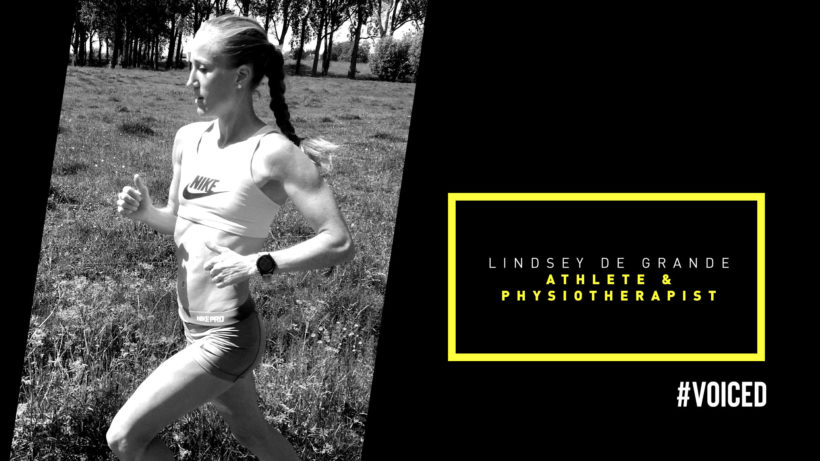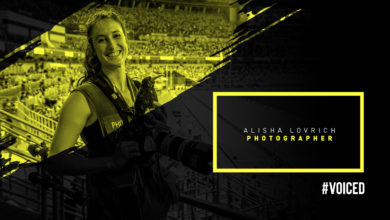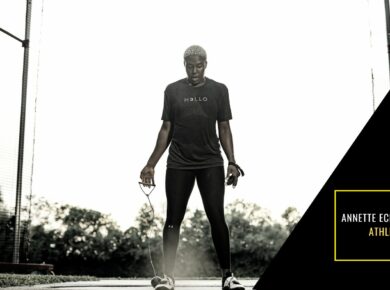Country: Belgium
Profession: Athlete (1500m) and Physiotherapist
Career highlights:
- 2021 European Indoor Championships team
- 2011 European U23 Championships – finalist – 8th
- 2011 European Indoor Championships – finalist – 6th
- 2009 European U23 Championships – finalist – 4th
- 2009 Golden Spike Award, the most important athletics prize in Belgium
You had your first international competition in 2005, what has been your most enjoyable moment?
My first international competition was the Youth Olympic Festival in Italy. It was a great experience and it was at this moment that I realized I wanted to become better and compete internationally.
One of my most enjoyable moments so far was the 2009 European U23 Championships. I had just switched from the 800m to the 1500m and had also changed my coach. So, I really didn’t know what to expect, and was really nervous about my capacity in the 1500m (that was the first year I went on high altitude training in St. Moritz, Switzerland, and after the training camp, I got sick and thought I would be able to compete well). I ended up finishing 4th and at first I was disappointed because I was so close to a medal, but then I was really happy because I improved my personal best. That gave me hope for the future.
The other moment would have to be when I competed at the 2011 European Indoor Championships. I was 21 at the time and ran 4:09 which I wasn’t expecting because I was also doing my physiotherapy internship at that time. I made it to the final and finished 6th. That was the moment I believed I had what it takes to be an elite athlete and gave me so much joy and confidence.
You have continued to compete despite your cancer diagnosis (and been an inspiration to many!) – how have you managed to cope with fighting cancer while still running?
I was diagnosed in 2011, a few months after finishing 6th at the European Indoor Champs. I started feeling more tired and my recovery after training wasn’t as normal. I often had a sore throat and infections, but I didn’t really think there was something serious going on. At the time I was in university and spent a lot of time training and thought that was the reason. But in July I was diagnosed with chronic leukemia. I had to started treatment immediately, and underwent chemotherapy in pill form, so I didn’t have to stay in hospital. I had to take the pills for a number of years, and the side effects were really severe.
I always tried to keep running because I love it and it was a form of medication for my mental health. It kept me going and believing in myself and the future. I always felt that it wasn’t the end and I still wanted to fulfil my athletic dreams. Also, I wanted to know how fast I could go and the maximum that I could push myself to. Even with the diagnosis I wanted to know what I was capable of. The first few years were very tough, I had a lot of muscle and nerve pain and was always very tired (especially because I was constantly throwing up).
In the beginning I thought I could keep competing, but that wasn’t possible. So I just kept running at a pace I could manage, and was always happier after my run than I was before. Even if I had energy for one hour a day, I used it for my running because that was the only thing that made me feel me alive. The rest of the day was about survival and I needed that goal to keep me going. Running didn’t set me back in any way so my doctors allowed it. I strongly believe we all need goals and dreams and something to hold onto, and for me that has always been running. Sometimes I felt a little improvement and that gave me so much hope because if I could improve during my run then it was possible for my health to improve. Running is my red line, my life and reason to hold on.
Do you have any words of encouragement for others that are also in the middle of fighting a battle (be it cancer or something else)?
I believe that as humans we are stronger than we think, we are capable of so much more. I truly believe that although life can be often so tough, there are always solutions and possibilities. We just need to figure out what is the right solution and possibility for us.
It is okay to have a meltdown, it is okay to have a rough period or a bad day. You don’t always have to fight it; in the end you need to believe and feel that there is hope and light and that good will always prevail. Whatever the situation I believe there is a reason for it and a lesson to be learned. I also believe that we don’t have to do it alone. We can help each other, make each other stronger and help one another improve. We are stronger together than alone. It breaks my heart when we make each other’s lives difficult and that isn’t necessary. A small gesture or kind words, and the feeling that you are not alone could mean so much to someone.
So, if you see someone who is struggling, reach out to them. If you don’t know what to say, ask what you can do for them. And if you are having a difficult time don’t hesitate to ask for help, it is not that you are weak. You are strong, but you need help to go through that period. I still struggle with the sadness and pain myself, sometimes it is so hard and you feel it won’t get better anymore and there is no reason to keep fighting. But, there is always a reason to keep fighting. Just try to see the light, even if it is a little sparkle. Be kind to yourself. It is okay, you are okay, and it will be okay.
Why did you decide to study towards Physiotherapy?
I was always interested in the human body and of course there is the link to sport and wanted to work with and help people. My diagnosis was another motivation for me to get my degree. I meet so many people who suffer from acute and chronic pain and it helps to have a support structure around you, and as a physio I get the opportunity to help those people. It also helps because I still train, and I use my own exercises as a way to prevent injuries. It is nice to study things that you also get to do practically, for me it was a like puzzle that clicked. The alternative was studying to become a doctor and in Belgium that is 7 years of studying and 3-5 years of specialization. I wasn’t sure if I could balance that with being an elite athlete. Physiotherapy was the closest choice and better to balance.
Having travelled the world – what is your favorite place and why?
Although we get to travel a lot as athletes, we don’t really get to see a lot of the places we visit because we usually arrive the day before the competition and use that time to rest, then you have your competition and you are so focused on that, and then the next day you travel back home.
Even for training camps and international competitions, although we do get some time to visit the local destinations, as an athlete you just want to focus on the training!
I went to Flagstaff on a training camp once and I got to see the Grand Canyon. That was a really cool experience and I loved running there. There is also St Moritz, that is probably my favourite place to train. It is very beautiful and I love the mountains. Although it is at altitude, I feel free when there and even feel that I can breathe better.
When I was younger our family went on vacation in South Africa, it is a very beautiful country. My team went there once for a training camp, but I couldn’t go because I was sick. I hope to visit again in the future.
Can you let us in on your pre-race routine?
Normally for breakfast I have muesli, yoghurt and a banana. Then I take my supplements; iron, magnesium and vitamin D, but those are everyday and not special for races. I then take a shower and prepare all the clothes I would need and check my bag like TEN times to make sure I have everything. When I get to the stadium, I warm up an hour before my race or 50 minutes before the call room. My warm-up will include a 4km run, with 3km on recovery pace and then I do 2 minutes on a fast pace and another slow paced 3 minutes. And some dynamic stretches and exercises.
I try to have my last meal three hours before the race, but I always have a small snack an hour before because my stomach struggles a bit due to the treatment. When I have an empty stomach, I start to feel sick. Sometimes I need caffeine gum before the race because my central nervous system is overloaded, and I often feel really tired when I get to the starting line. The gum helps me to be more alert and reactive and gets rid of the feeling that I need to sleep.
I go to the toilet about 100 times before my race and I’m always scared that I will need the toilet at the starting line! No matter how many times I go, I always have that feeling at the start line. I put on my spikes 15 minutes before the race and just try to stay calm and motivated.
What is your go-to meal if you have friends around for dinner?
To be honest I don’t have much time to do that, but when I do it is mostly a healthy meal as my friends are also elite athletes. I always ask them what they want to eat and hope that I also like it, and that is what we will have. I try to eat as healthy as possible, to help with my training and recovery. I do like pizza and French fries, but I try to avoid eating them before my competitions. But if you feel the need to have some French fries or ice cream once in a while, that’s okay and you don’t have to feel guilty! There is no need to put yourself under pressure on always being aware of what you eat and feeling guilty about it.


